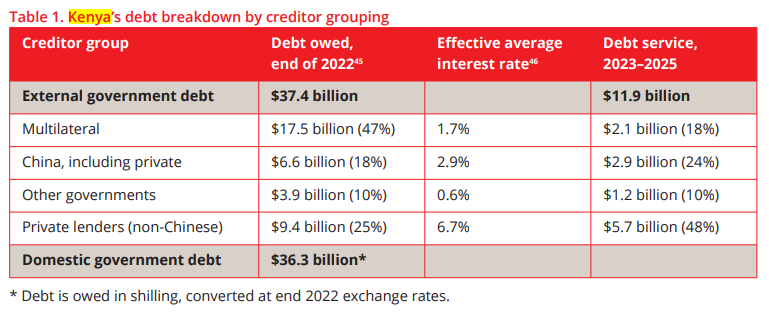Riots against several proposed taxes in Kenya have been exacerbated by the country’s external debt crisis and will require international intervention to resolve, international development charity Christian Aid has warned.
The intervention comes as at least 13 protesters have been killed during protests in Kenya, doctors say. The demonstrations, which escalated on Tuesday 25 June 2024, have seen a section of the Kenyan Parliament go up in flames and forced a government u-turn.
According to Christian Aid’s recent report, Between Life and Debt, Kenya spent more repaying external debts - £3.7bn - than on healthcare or education last year. Kenya is also paying its lenders ahead of investing in climate mitigation, the charity says.
Janet Ngombalu, Christian Aid’s Country Director in Kenya, said: “Kenyans are worried. In the face of this abhorrent violence, too many have not felt safe on our streets. This disastrous debt burden has led to unsustainable spending cuts. We now see a lack of equipment and medicine in hospitals and reduced welfare for the elderly and vulnerable.”
Approximately 90% of the debt owed to private creditors by lower income countries is governed by English law. With an impending election in the UK, the Christian Aid is calling on the next Government to introduce legislation to tackle the debt crisis, including in Kenya to:
Ensure private lenders play their part in cancelling debt when lower income countries are in crisis; something that nearly half (48%) of Briton’s agree with.
Tackle predatory private creditors who lend recklessly and charge the highest interest rates. At 6.2%, they are almost double that of Chinese lenders (3.2%), and far higher than multilateral (1%) and bilateral (1.3%) lenders.
Polling conducted in April 2024 by Savanta for Christian Aid reveals the majority (62%) of Britons believe it is wrong that more than half of African countries spend more money on external debt than on health, education or combatting the climate crisis. A similar number (57%) think it “absurd” that African counties spent more than 50 times more on external debt payments than the entire UK aid budget for Africa in 2023.
Jennifer Larbie, Head of UK Advocacy and Campaigns at Christian Aid, added: “Kenya is trapped in a debt crisis not of its making and with no way out. Rather than building hospitals and schools and training doctors and teachers, the government has no option but to line the pockets of predatory private creditors.
“When riots have been sparked by tax rises to pay off national debt interest, how can the UK Government sit in silence? We have a moral responsibility to intervene with debt relief measures so that millions of people living in fear of conflict and poverty can thrive.”
ENDS.
Notes to editors:
Interviews available in Nairobi and London. Christian Aid’s recent report, Between Life and Debt, can be found here: https://www.christianaid.org.uk/resources/our-work/between-life-and-debt


Savanta interviewed 2148 UK adults online from 26th April to 29th April 2024. Data were weighted to be nationally representative of UK adults by age, gender, region, working status and social grade. Savanta is a member of the British Polling Council and abides by its rules. Data sets are available.
Findings include:
- 62% of Britons think it is wrong that more than half of African countries spend more money repaying external debt than on health, education or combatting the climate crisis.
- 57% of Britons think it is absurd that African counties spent more than 50 times more on external debt payments than the entire UK aid budget for Africa in 2023.
- 48% of Britons think the UK Government should introduce legislation to help ensure private lenders play their part in cancelling debt when lower income countries are in crisis.
- 45% of Britons think the UK should wipe the debts of lower income countries so that they can spend the money on healthcare, education and tackling the climate crisis.
- 39% of Britons believe debt servicing is a perpetuation of colonialism and needs eradicating.




